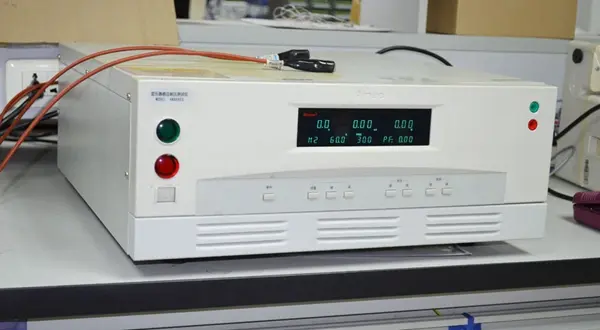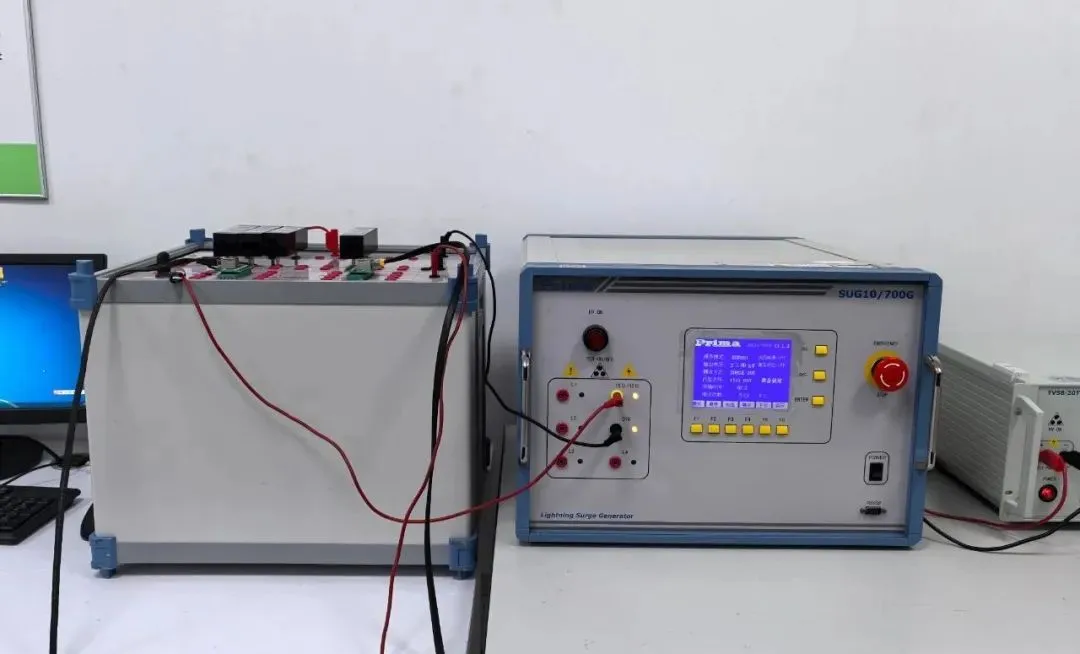
Food Contact Items Testing
Food Contact Materials (FCM), as the name suggests, refers to materials that have already or will come into direct or indirect contact with food, or are likely to do so. These materials function as indirect food additives but are not components of food itself or intended to be consumed.

1. Products
- Kitchen Appliances: Coffee machines, juicers, blenders, electric kettles, rice cookers, ovens, MICrowaves, etc.
- Cookware: Pots, spatULas, chopping boards, stainless steel kitchenware, etc.
- Tableware: Knives, forks, bowls, chopsticks, spoons, cups, plates, etc.
- Children’s Products: Baby bottles, nipples, baby drinking cups, etc.
- Various Food Packaging Materials: Containers for beverages and food, etc.
2. Common Types of Food Contact Material Materials
1. Plastics and Their Products: PS, PP, PE, PC, PVC, PA66, ABS, PET, etc.
2. Metal Products: Stainless Steel (304, 201, 316), Cast iron, Al alloy, etc.
3. Glass and Ceramic Products: Ceramic, Glass, Crystal, etc.
4. Rubber Products: Rubber, Silicone rubber, etc.
5. Other Materials: Epoxy resins, Teflon resins, Paperboard, Woods, etc.
3. National Standards
China (GB 4806 Series) Standards
- GB 4806.1-2016: General Safety Requirements for Food Contact Materials and Products
- GB 4806.2-2015: Nipple
- GB 4806.3-2016: Enamel Products
- GB 4806.4-2016: Ceramic Products
- GB 4806.5-2016: Glass Products
- GB 4806.6-2016: Plastic Resins (only for plastic pellets)
- GB 4806.7-2016: Plastic Materials and Products (for molded products)
- GB 4806.8-2016: Paper and Paperboard Materials and Products
- GB 4806.9-2016: Metal Materials and Products
- GB 4806.10-2016: Coatings and Coatings
- GB 4806.11-2016: Rubber Materials and Products
- GB 4806.12-2022: National Food Safety Standard for Bamboo and Wood Materials and Products for Food Contact
- GB 9685-2016: National Food Safety Standard for Additives Used in Food Contact Materials and Products
United States (FDA) Standards
- U.S. FDA CFR 21 181.32 and 180.22: ABS plastic requirements
- U.S. FDA CFR 21 177.1010: Acrylic resin requirements
- U.S. FDA CFR 21 177.1210: Closure with sealing gaskets for food containers
- U.S. FDA CFR 21 177.1460: Melamine resin requirements
- U.S. FDA CFR 21 177.1500: Nylon requirements
- U.S. FDA CFR 21 177.1520: PP plastic requirements
- U.S. FDA CFR 21 177.1520: PE plastic requirements
- U.S. FDA CFR 21 177.1580: PC plastic requirements
- U.S. FDA CFR 21 177.1630: PET plastic requirements
- U.S. FDA CFR 21 177.1640: PS plastic requirements
- U.S. FDA CFR 21 177.1660: PBT (Polybutylene Terephthalate) requirements
- U.S. FDA CFR 21 177.1680: PU resins (Polyurethane) requirements
- U.S. FDA CFR 21 177.1830: MMA, MBS requirements
- U.S. FDA CFR 21 177.1975: PVC requirements
- U.S. FDA CFR 21 177.2600: Rubber requirements (e.g., SBS, TPR, TPE, etc.)
European Union (EC No.) Standards
- Plastics: EU 10/2011, EU 2016/1416, EU 2017/752, EU 2020/1245
- Ceramics: 84/500/EEC, 2005/31/EC
- Coatings: AP(2004)1
- Rubber: AP(2004)493/11/EEC
- Silicone Rubber: AP(2004)5
- Metals and Alloys: CM/Res(2013)9
Germany (LFGB) Standards
- Molded Products/Complete Products: LFGB 30 & 31
- Polyethylene PE: EU (No) 10/2011 & BfR Recommendation III
- Polypropylene PP: EU (No) 10/2011 & BfR Recommendation VII
- Polycarbonate PC: EU (No) 10/2011 & 2011/321/EU
- Polystyrene PS: EU (No) 10/2011 & BfR Recommendation V & VI
- Acrylonitrile Polymers ABS/SAN: EU (No) 10/2011 & BfR Recommendation L & VI
- Polyamide/Nylon PA: EU (No) 10/2011 & BfR Recommendation X
- Polyethylene Terephthalate PET: EU (No) 10/2011 & BfR Recommendation XVII
- Silicone Rubber: BfR Recommendation XV
- Ceramics/Enamel/Glass: DIN 51032
- Stainless Steel/Metal Products/Plated Products: LFGB 35B 80.03-1/2
- Non-stick Coatings: BfR Recommendation LI
- Organic Coatings: AP (2004) 1
- Rubber: BfR Recommendation
France (DGCCRF) Standards
- Various Plastics: DGCCRF 2004-64
- Rubber: DGCCRF 2004-64
- Silicone Rubber: DGCCRF 2004-64
- Ceramics, Glass, Crystal: DGCCRF 2004-64
- Enamel: DGCCRF 2004-64
- Pure Stainless Steel: DGCCRF 2004-64
- Non-coated Steel (for Packaging): DGCCRF 2004-64
- Coated Steel (for Packaging): DGCCRF 2004-64
- Organic Coated Steel: DGCCRF 2004-64
- Aluminum and Aluminum Alloys: DGCCRF 2004-64
- Cast Iron: DGCCRF 2004-64
- Tin and Tin Alloys: DGCCRF 2004-64
- Zinc: DGCCRF 2004-64
- White-coated Metals and Alloys: DGCCRF 2004-64
4. Certification Process
1. Provide product specifications and request a quote.
2. Fill out the application form.
3. Send samples.
4. JJR Laboratory conducts testing.
5. Report issuance.
Timeline: 5-7 business days
Email:hello@jjrlab.com
Write your message here and send it to us
 Global Certification Guide for Lithium Batteries
Global Certification Guide for Lithium Batteries
 Compliance of Amazon 18650 Lithium Battery Product
Compliance of Amazon 18650 Lithium Battery Product
 What is CE Certification and EU Authorized Represe
What is CE Certification and EU Authorized Represe
 What Are the Lithium Battery Safety Tests?
What Are the Lithium Battery Safety Tests?
 What is the EN 61326-2-3 Standard?
What is the EN 61326-2-3 Standard?
 Why Do Smart Sockets Need IEC 60884 Certification?
Why Do Smart Sockets Need IEC 60884 Certification?
 Why Retest the Device if the 5G Module Already Has
Why Retest the Device if the 5G Module Already Has
 Overview of IEC 62087 Test Standard
Overview of IEC 62087 Test Standard
Leave us a message
24-hour online customer service at any time to respond, so that you worry!




